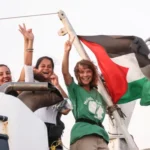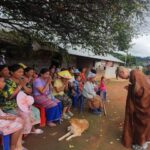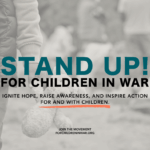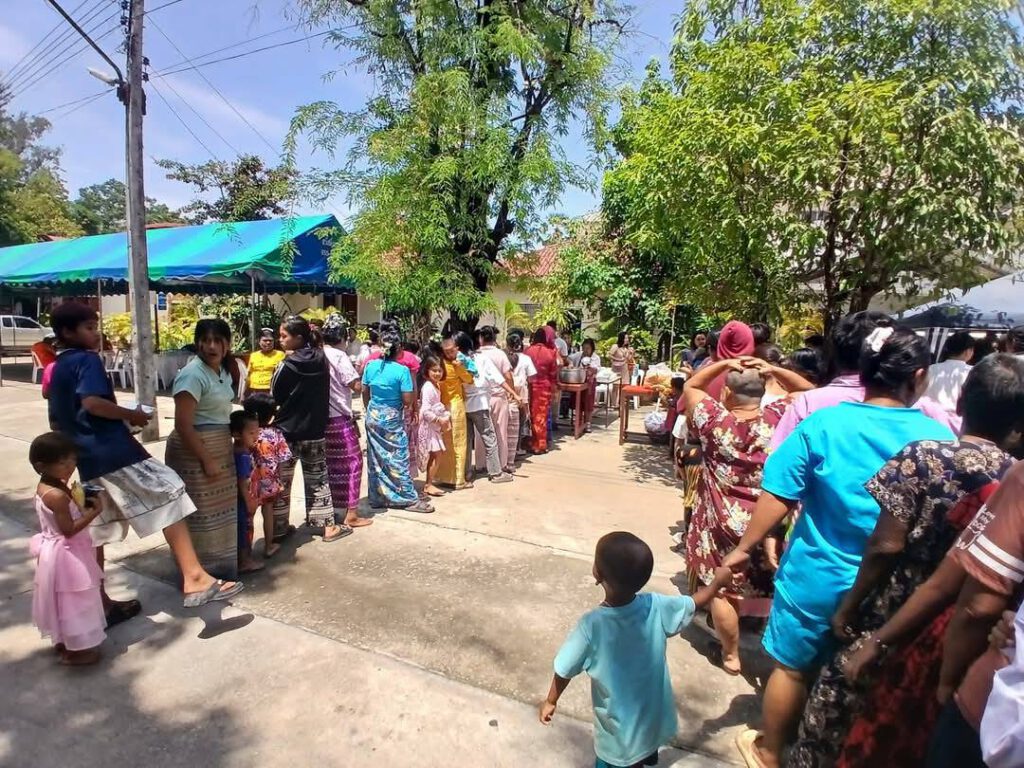
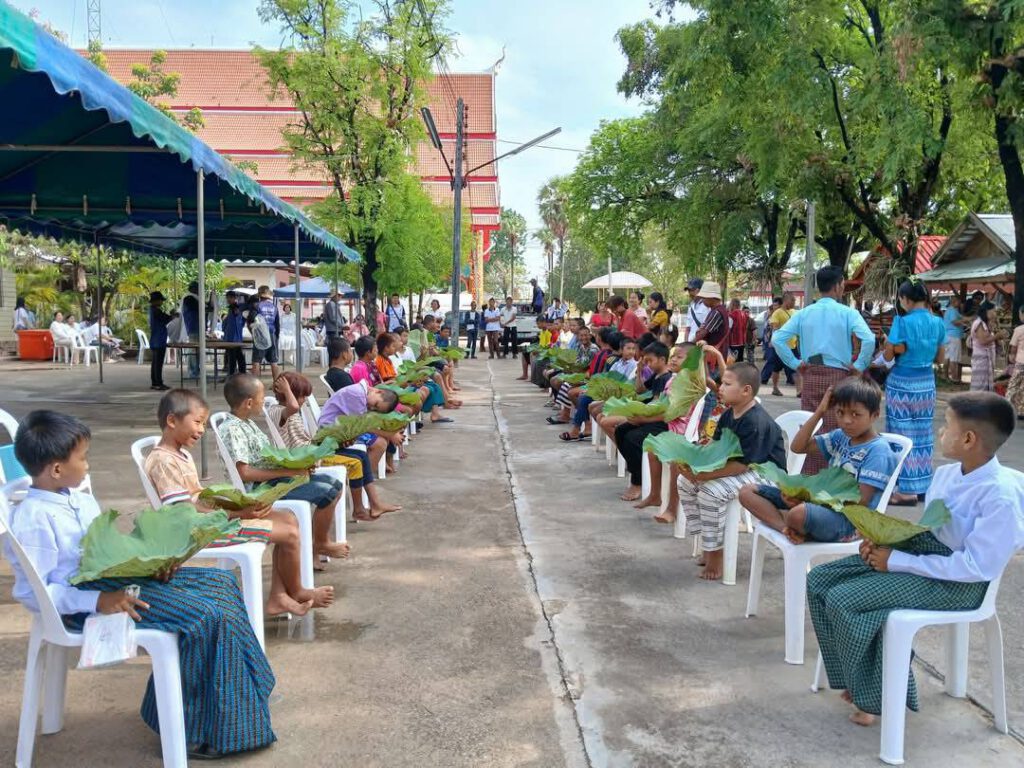
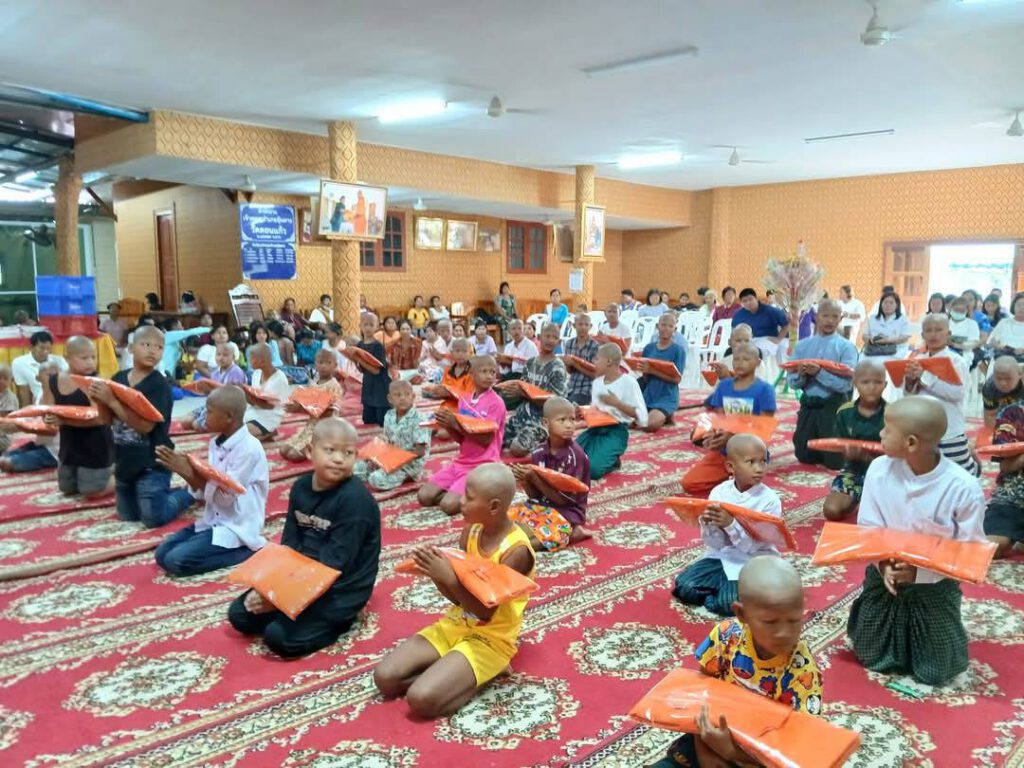
“Every child deserves dignity, opportunity, and belonging. No matter where they are from, they are simply children.”
On 30 April 2025, a deeply moving and powerful event took place in Mae Sot, Thailand, where 40 children—many from highly vulnerable backgrounds—were ordained as novice monks at Wat Don Kaew. This collective act of compassion was made possible through the tireless dedication of local communities, monastics, civil society organizations, and international partners.
Among the newly ordained novices are children from stateless and migrant families, ethnic minority groups, and communities affected by the ongoing civil conflict in Myanmar. For these children, ordination is more than a religious rite; it is a lifeline—offering protection, stability, and access to both spiritual and secular education.
The event was a resounding testament to the power of collective goodwill. Donors and supporters contributed not only financial resources but also their time, energy, and love. Offerings included food, drinks, robes, bedding, hygiene items, and learning materials. The sight of smiling children welcomed into the monastic community, surrounded by families and supporters, was deeply heartening.
The ordination ceremony was organized with the spiritual guidance of Phra Khru Anukoonworakarn, Ecclesiastical Head of Umphang District, and Phra Ajahn Somin Suriya of Wat Don Kaew. They were joined by Bhikkhuni Thammakamala and lay supporters from Ko Yo, Songkhla, along with teachers from the Anukoon Wat Don Kaew School.
This initiative was supported by a wide network of partners, including:
SmileLay Club
SmileMom
Rights Beyond Borders (RBB)
Spirit in Education Movement (SEM – Semsikkhalai)
INEB – International Network of Engaged Buddhists
Sathirakoses-Nagapradipa Foundation
GNRC Thailand – Global Network of Religions for Children
The ordination is not just a symbolic act—it is a grassroots model of holistic child protection and empowerment rooted in Buddhist values. It reinforces a central belief of the engaged Buddhist movement: that creating compassionate, safe spaces for children requires the shared commitment of families, communities, and society.
As one supporter said, “It truly takes all of us to raise a child. If we want children to grow into the kind of people we envision for our future society, we must all be involved.”
INEB is honored to stand in solidarity with all who made this initiative possible. May this effort inspire similar actions throughout our regional networks.
Sādhu! Sādhu! Sādhu!





